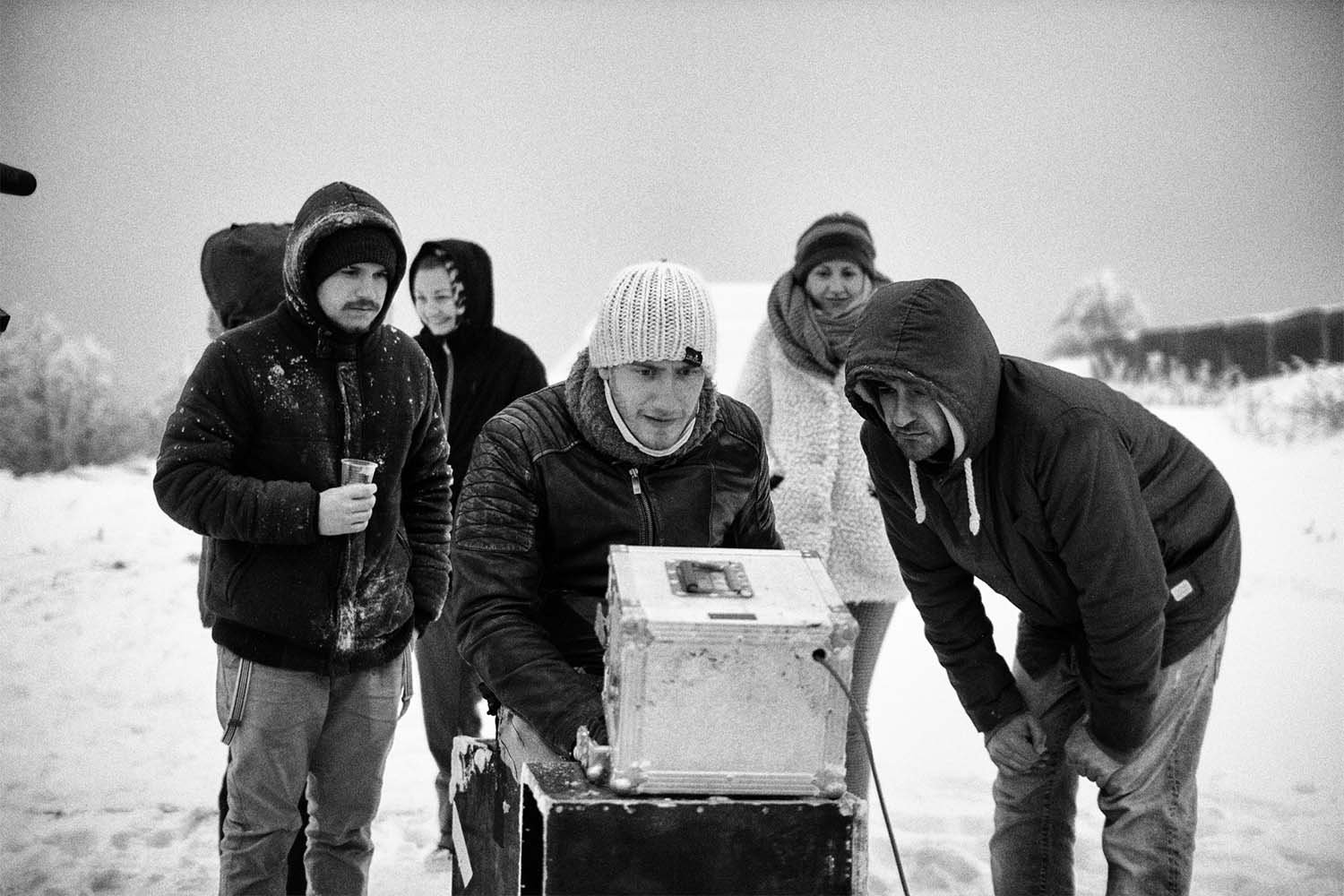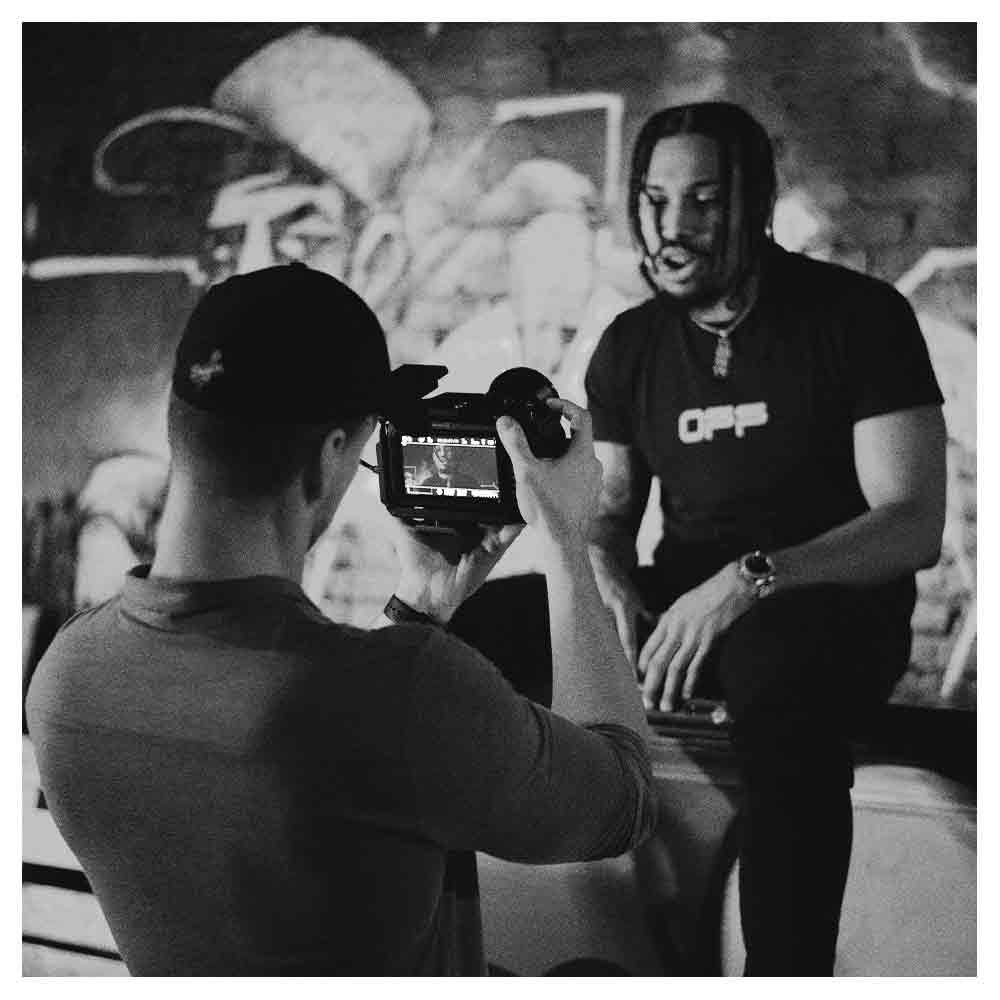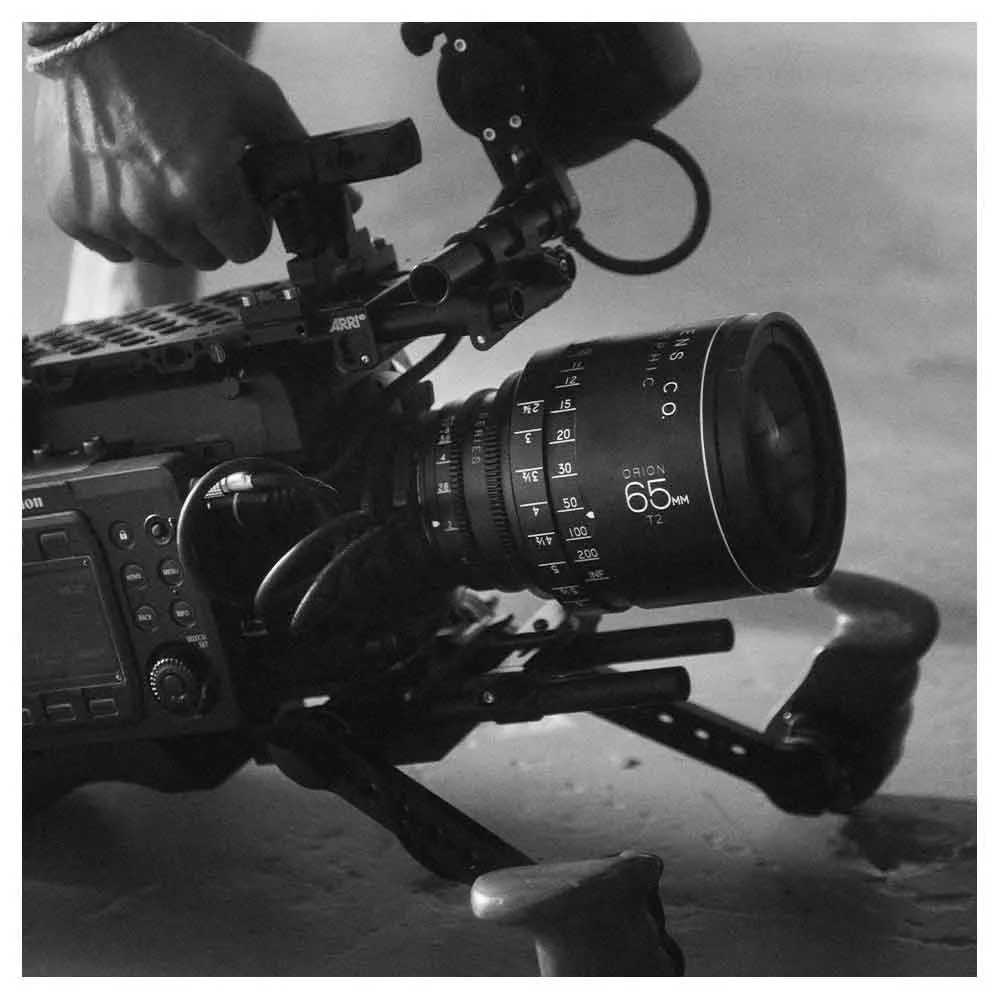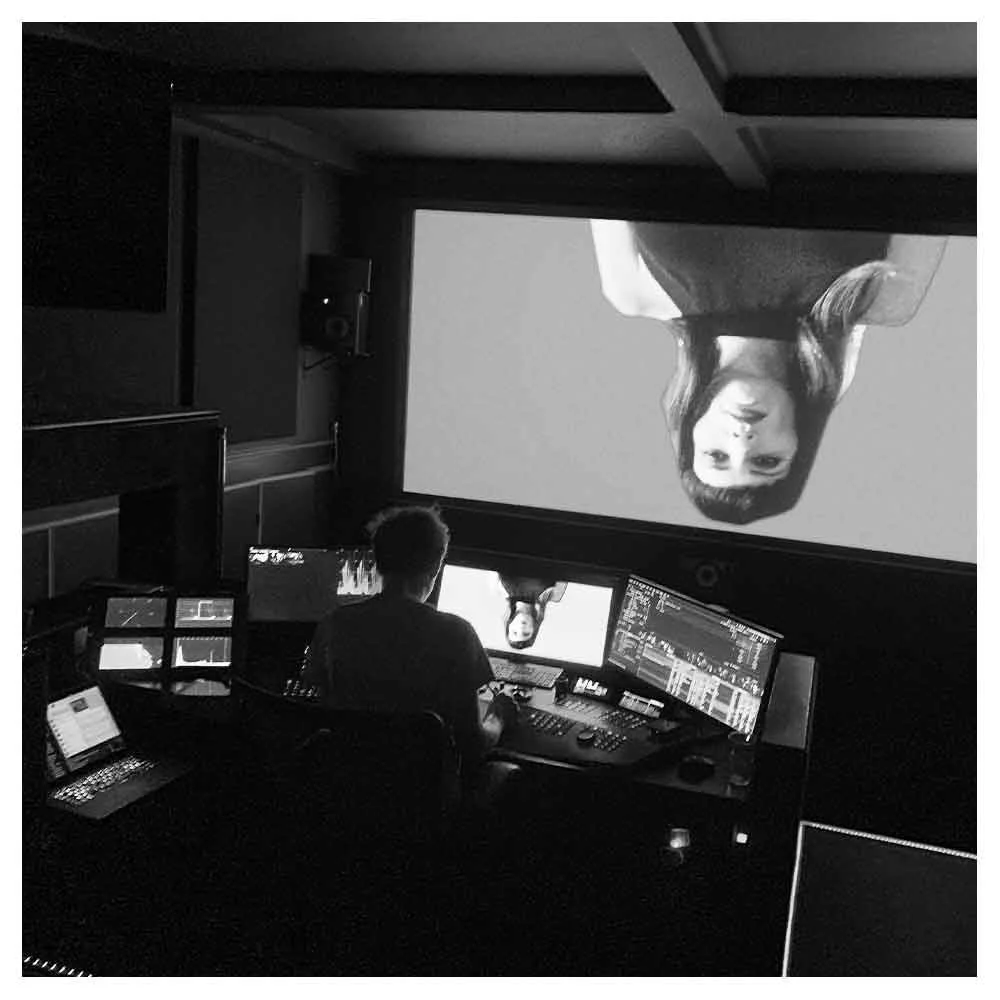How To Become A Film Director (Without Going To Film School)
Do you dream of working as a film director for commercials, music videos, (short) films, fashion films, branded content, or any other type of film or video production without going to film school?
Then I have news for you, to become a director, you don’t need a degree in filmmaking! Nor do you have to live in cities like Los Angeles or New York to become a director.
I don’t have a filmmaking degree, and I have worked in this industry for over 15 years! I’ve traveled the world to the most exotic and remote locations to shoot commercials for jewelry and sports brands, created music videos for world-renowned artists, and directed two worldwide cinema-screened documentaries about the former no. 1 DJ.
In this article, I will reveal how you can become a film director without attending film school!
What does a film director do?
To understand why you don’t need a degree as a film director, you first need to understand what a film director actually does.
In essence, a film director is a working title for the creative leader of a film project. This person decides how a project will be filmed and, in most cases, who it will be filmed with.
From a creative point of view, a film director oversees the preparation phase of a project (pre-production), the filming phase (production), and the finalization phase of a project (post-production).
film direction means having A creative vision & Mindset
To oversee these different phases successfully, a film director has to have a creative mindset to envision the entire project before it’s actually made.
This is important because, just like a ship would float motionless if the captain doesn’t know where to go, a film director can’t deliver a stunning film if he or she doesn’t know where to take the project creatively.
What does a creative mindset mean?
Now you might wonder, what does having a creative film project mean? Let’s pretend you want to shoot a concept for a (short) film, commercial, music video, or whatever project which involves a car chase, a woman, and a gun.
You probably have a different woman, a different car, and a different kind of gun in mind than I do. Maybe you think of a sexy woman in a classic sports car with a minigun strapped in her garter belts? Or a copy of your grumpy oversized neighbor in a dirty old camper van with an AK47?
If we add some background information to this specific example by stating that the woman is chasing down someone who stole her money and needed it back immediately to save her dying child, who otherwise only has one week left to live. Do you still envision the same, or do you see something completely different?
If it were just a furious car chase, you might film and edit the project like an action movie. Fast, flashy, and packed with suspenseful music.
But when the dying child storyline enters the project, would you still capture it like an action flick, or would you aim for a more simplistic and emotional approach instead?
How you would bring that specific project to life defines your creative filmmaker’s vision for the project.
Being a film director is all about being A great communicator
To be a good film director, you must communicate your filmmaker’s vision with your cast and crew.
That might seem scary at first because most of the people you will work with on a film set probably have way more experience with filming than you do. But that’s just a mental roadblock.
As a film director, you have to be the person that knows the substance of a specific project best. You need to know what you want and why you want to see it in a particular way and translate those thoughts and story ideas into words so your crew can help you visualize it.
That is essentially the essence of being a film director, a great communicator. And to be a great communicator, you don’t need a filmmaking degree. You need good communication skills.
Film Directing is all about having great communication skills
You have to be able to translate your vision into words and formulate them with conviction using tools like storyboards, all sorts of visual references, and director treatments so that everybody can get on board with it and is motivated to bring your vision to life.
Don’t worry about all the fancy filmmaking terms, jargon, industry knowledge, and technical expertise. You can learn those from filmmaking books or online courses.
Just like you can learn how to manage and work with film budgets. How to read, interpret, and develop scripts with narrative storylines, identify set locations, and work with actors.
If you can confidently translate your artistic vision for a film project, you can become a film director. No matter your age, gender, religion, ethnicity, or background!
Knowledge & experience are power!
Being a great communicator oftentimes comes with a healthy dose of confidence. Confidence in your story idea or approach for the project and confidence in yourself and your abilities to deliver a successful film.
Beware, confidence is something utterly different than arrogance. Filmmaking is a team sport! Yes, you can be the captain of the film crew, but it's not about you. Although many egos are involved in the film world, filmmaking isn't supposed to be an ego trip.
Nevertheless, confidence is not something we are all born with. In most cases, confidence in yourself and your skillset comes when you gain filmmaking experience on your career path.
Gaining the knowledge.
Suppose you don't have the opportunity to gain some filmmaking experience.
In that case, you can invest your time in gaining knowledge, so you are ready when an opportunity to gain experience knocks on your door.
You can boost your knowledge by reading film-related books, attending workshops, following online masterclasses, and watching tons of movies, series, documentaries, making-offs, and analytic film reviews.
You can study the works of film directors you admire and those you don't. You'll learn much from watching and analyzing how others have created their projects.
Knowing why something doesn’t work or failed is just as valuable as understanding why a project succeeded!
Filmmaking is a game of trust.
Filmmaking, no matter which genre, is essentially a game of trust. People who invest money into a project want to know that you can deliver the best possible outcome for their money.
They want to know if you have the right credentials and experience to solve their problem—make a beautiful film!
That is how getting a job in any field of work. Do you have the right degree, skillset, or expertise to fulfill the job you are applying for? Are you capable of helping your potential employer solve their problems?
In most cases, you can’t just apply for the CEO position. You have to climb the career ladder to get that position. That works the same for filmmaking.
If you want to direct a one million dollar film, you’ll first need to show you can direct a $500.000 film. If you want to direct a $500.000 film, you need to show that they can trust you with a $250.000 short film, etc.
You start at the bottom and work your way up from there.
The biggest advantage and disadvantage of going to film school
There is no right or wrong way to become a film director. If you ask 20 different film directors how they started their careers you will probably get 20 different answers.
Many successful film directors like Steven Spielberg, David Fincher, George Lucas, and Quentin Tarantino initially worked as an assistant, film production interns, or other kinds of poorly paid filmmakers positions before making their first films and focusing on film directing.
The advantage of going to film school.
The biggest advantage of going to film school is that you'll learn how to make a film in a very safe and structured environment and surround yourself with a network of like-minded creators who may become your future collaborators.
That will give you a head start in your professional career compared to filmmakers who didn't go to film school and have to build their network from the ground up.
The disadvantage of going to film school.
From what I’ve seen and experienced over the years, the disadvantage of going to film school is that you grow up as a filmmaker with a privileged mindset.
In film school, you are taught how film production works in an idealistic world. This is how you do it, and that is what you need to do it correctly.
Unfortunately, working in the industry on projects and having all the tools and resources available to you, like camera gear, studios, post-production facilities, and crew members on demand for every project so you can do it by the book, isn’t how the 'real world' operates.
A degree in filmmaking shows you can make a film in an idealistic world, but it doesn’t necessarily show that clients can trust you with their film budgets.
And for some, this reality can be a challenging experience coming from film school and having the hopes and expectations of becoming the next Steven Spielberg right away.
You still have to start climbing the career ladder, sometimes with limited resources, starting at the bottom.
You got to have passion & patience
When Steve Jobs and Bills Gates, the masterminds behind Windows and Apple, attended de D5 Conference in 2007, an audience member asked for their single, most valuable piece of advice even to attempt to create something worthy of their achievements.
Steve Jobs answered by saying: "People say you have to have a lot of passion for what you're doing, and it's true! The reason is that it's so hard that if you don't, any rational person will give up." (check out the original fragment here)
You got to have passion.
I don’t know many industries where the competition is so fierce other than the film industry. That’s why Steve Jobs was absolutely right! When you want to pursue the career you've always dreamed of, you must have a lot of passion.
In working with film cameras, you have to have a lot of passion for visualizing story ideas with a camera. This is important because, just as Steve mentioned, it is so damn hard that if you don't, you're likely to give up.
You got to have patience.
Besides competition, getting your foot in the door takes a lot of time. The filmmaking business is a people's business, and it requires a lot of time investment for people to get to know, like, and trust you with their budgets.
When everything moves slowly, and competition is fierce, you have to have a lot of passion and patience to grind. That involves doing a lot of work, including stuff you don't necessarily really enjoy doing. And even more, that includes doing a lot of unpaid or poorly paid jobs initially.
The harsh reality is that you won't succeed in the filmmaking world if you don't want to hang around on a film set, working with like-minded people to create something visually stunning.
How to get work as a director without a filmmaking degree?
Getting the work as a director without a filmmaking degree is just a matter of how much you want.
We live in a time where you can shoot, edit, and publish any kind of film with just a smartphone. If you want to make films, you must start doing them.
How I started getting jobs.
In the early years of my filmmaking career, I never thought about being a film director. I enjoyed running around with a film camera, creating all sorts of film-related projects until people started offering me money to create stuff for them. Which essentially made the whole experience even better!
This resulted in doing all sorts of jobs, mainly to determine whether I would like the work. This included capturing corporate events, weddings, photography jobs, workshops, music videos, CD releases, student events, charity events, local bars and DJs’ promos, festival recaps, and even funerals! You name it, and I probably created a video for it during those early days of my filmmaking career.
One week after turning 19, I started my own company as a filmmaking freelancer and got jobs exclusively through word of mouth.
Over the years, I learned that I enjoyed the directing aspect of film production and started specializing by reading tons of books and learning along the way.
Find a mentor.
If you don’t want to follow the traditional path of going to school, I recommend finding someone better than you at what you want to be doing and working for them for free or for a very minimal paycheck at the beginning. This approach will put you on their radar, learn from them, and build your network through theirs.
I did the same when working on DJ and nightlife projects at the beginning of my career and approached Final Kid.
He took me under his wing and taught me all the ins and outs of this content type. Working with him elevated everything in my career, and things went from first to sixth gear.
Create your own future.
My advice for getting work as a film director without a filmmaking degree is not to wait for a lucky opportunity to cross your path. Luck is when preparation meets opportunity. You need to hunt down your future opportunities!
You can start by looking at social media. There are so many different Facebook groups with easy access to which people always look for last-minute creators.
Try helping other film directors on their projects by working as a PA, editor, actor, or producer before sitting in the director's chair yourself. It will give you a good understanding of how every film department works and what it takes to create something.
Work in as many genres in the first two to three years. Once you’ve discovered what you like, start specialing by making the kind of projects you eventually want to be directing.
If that is music videos, let music labels or artists whose music you like know that you’re looking for opportunities to create stunning music videos.
If that's commercials, you need to get in touch with people who work in the world of commercials. If that's fashion films, you need to get in touch with fashion brands.
Build, build, build
To climb the career ladder, you must start many small jobs. These small jobs help you gain experience, build your network and help you take your very first step through the door, and get to know the people that might award you future opportunities.
Now I’m not saying you need to sell your soul, work for free, not be able to pay rent, and live on the streets. I encourage you to contact people and get involved in the field where you eventually want to work. You can do this during hours you have nothing else to do, on the weekends or evenings.
Meeting new people while working on all kinds of different projects is the only way to start. You need to build a track record and become a reliable workforce to work with.
With the public's growing demand for more content, you'll eventually get your shot. There will always be brands and producers looking for a replacement when somebody else fucks up, becomes ill, or a last-minute job arrives on their desk.
It's your job to be prepared when that opportunity comes. The more experience you gain and the more perspective you'll have on life, the better filmmaker you will become. That is how you become a film director without going to film school!



































